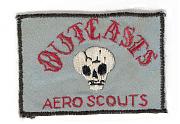Military Review, Sep-Oct 07: Paper and COIN: Exploiting the Enemy's Documents
....painstaking media collection and exploitation must become an integral part of all our combat efforts in Iraq, Afghanistan, and wherever else U.S. forces are deployed. Even within the HUMINT field of which it is a part, DOCEX is frequently an afterthought; it is underfunded and understaffed.
Despite the truly heroic efforts of a few within the intelligence community, media collection is rarely emphasized. This writer personally witnessed U.S. Soldiers traipsing through papers blowing around destroyed sites, never once deigning to pick up the material (Kandahar and Nuristan provinces). When confronted, the Soldiers said that investigating such stuff was not part of the package of Soldier skills they had been taught at basic training, nor had it been addressed prior to deployment. This lack of DOCEX awareness is sometimes corrected by aggressive, situationally aware commanders. The Marines and Special Operations Forces appear to be trained up, but our forces need to be universally cognizant of the importance of document recovery and exploitation....











 "A Sherman can give you a very nice... edge."- Oddball,
"A Sherman can give you a very nice... edge."- Oddball, 
Bookmarks